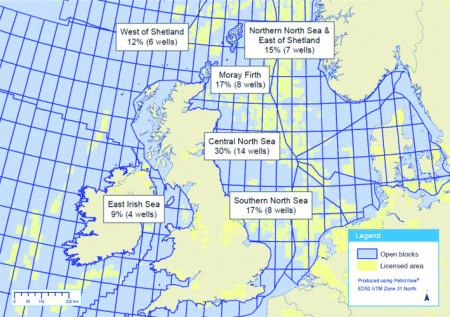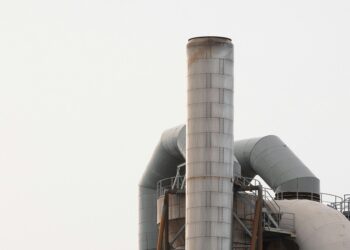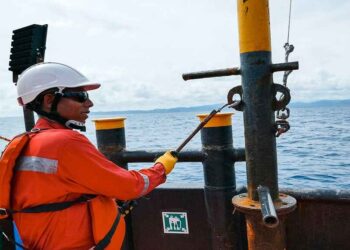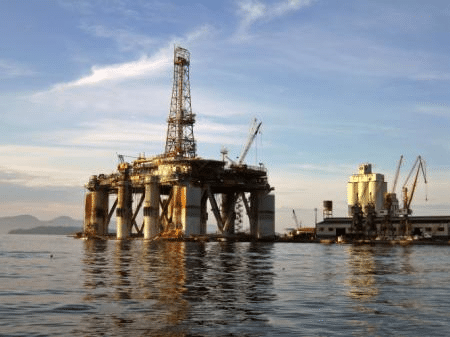Drilling and deal activity on the UK Continental Shelf (UKCS) will remain at a steady low for at least the next year, suggests a new report from business advisory firm Deloitte. Poor weather and high costs have affected the amount of exploration and appraisal (E&A) work conducted in the region during the first quarter.
The report, which details activity across North West Europe, found 12 E&A wells were drilled on the UKCS. Although that’s an increase of five wells compared with the final quarter of 2013, it is one less than the same period last year.
There were fewer deals completed compared with the same period last year, with 10 this quarter compared to 19 a year ago. This is eight fewer than the final quarter of 2013. Farm-ins, where one company takes a stake in another’s field, remained the most prevalent type of deal, comprising 50% of the total for offshore UK.
Graham Sadler, managing director of Deloitte’s Petroleum Services Group, said the decline in deals could be due to a gap in price expectations between vendors and buyers. He said significant challenges remain in the region.
“It is very likely that what we’re seeing is a result of the continuing higher operating costs and the ongoing challenges of a mature region. These could be having a knock-on effect on deal flow since sellers might be seeking a higher price than buyers may be willing to pay,†he said.
“When profitable extraction is more challenging for operators, farm-ins are the most popular type of deal. Bringing another company in helps to spread risks and costs within the time frames required. Operators are definitely showing more caution, indicating, again, that incentives from government may be the only way to make the economics more viable.â€
This caution is underlined by the fact that only two gas fields started producing this quarter and one condensate field was approved for development. All of these received the small field allowance. The government’s support of recommendations made in Sir Ian Wood’s report,UKCS Maximizing Recovery Review, along with the fiscal review announced in Chancellor George Osborne’s Budget in April, are positive steps. While the recommendations of the Wood Review are good news for the industry, recent tax changes could lead to greater costs for North Sea operators.
The changes to the way bareboat chartering is taxed applies to companies operating on the UKCS leasing rigs and offshore accommodation. The measure will increase costs and lead to upward pressure on day rates at a time when operating costs are already at an all-time high.
Derek Henderson, office senior partner for Deloitte in Aberdeen, said the tax was a blow for industry, especially as there was evidence of a slight decline in rig rates in the first



















































